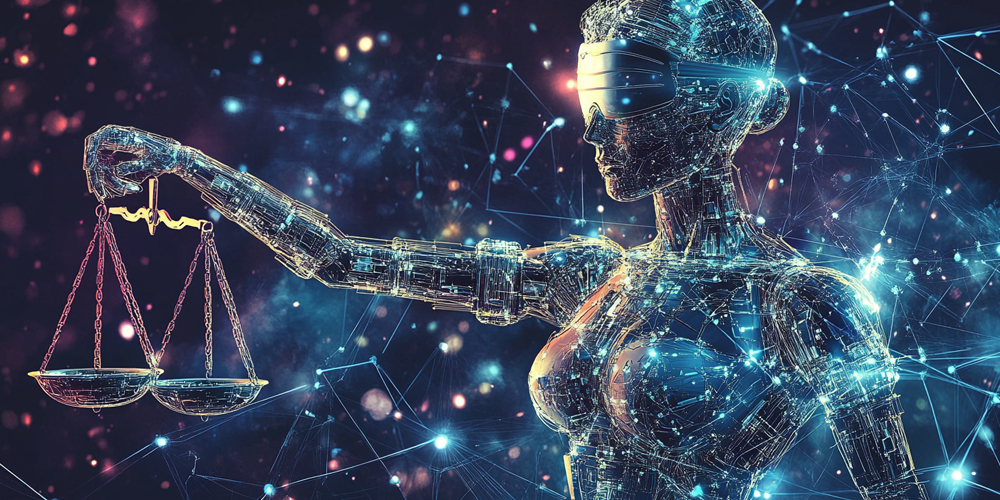AI Bias: Understanding and Addressing Ethical Concerns
Artificial intelligence (AI) has become integral to many aspects of our lives. From virtual assistants to recommendation systems, AI influences decisions every day. However, as AI technologies evolve, AI bias has emerged as a critical ethical concern. Understanding AI bias and its implications is vital for developers, users, and policymakers. This article explores the nature of AI bias and offers strategies for addressing it.
What is AI Bias?
Defining AI Bias
AI bias refers to systematic and unfair discrimination against certain groups or individuals within AI systems. It can occur when algorithms produce results that are prejudiced due to flawed data or design. Bias can affect hiring processes, loan approvals, and even criminal justice outcomes.
Sources of AI Bias
Understanding the sources of AI bias is essential for mitigation. Bias can originate from various factors:
- Data Bias: This occurs when the data used to train AI models is unrepresentative or flawed. If historical data reflects societal biases, the AI will likely learn and replicate those biases.
- Algorithmic Bias: The algorithms themselves can introduce bias, especially if they are designed without considering diverse perspectives.
- Human Bias: Developers’ unconscious biases can influence how AI systems are created and deployed.
-
Understanding AI bias is crucial for ethical technology. Explore the implications and strategies to create responsible AI systems!
The Impact of AI Bias
Real-World Consequences
AI bias can have serious real-world implications. For example, biased AI systems in hiring may lead to qualified candidates being overlooked. In law enforcement, biased algorithms can unfairly target specific communities. These outcomes can perpetuate existing inequalities and harm marginalized groups.
Case Studies of AI Bias
Several high-profile cases illustrate the consequences of AI bias:
- Facial Recognition Technology: Studies show that facial recognition systems are less accurate for people with darker skin tones. This bias has raised concerns about surveillance and wrongful arrests.
- Hiring Algorithms: Companies using AI for recruitment have faced backlash for algorithms that favor male candidates over equally qualified female candidates.
Addressing AI Bias
Promoting Diversity in Data
One of the most effective ways to combat AI bias is by ensuring diverse and representative data sets. Organizations should prioritize data collection that reflects various demographics. This approach minimizes the risk of reinforcing existing biases.
Algorithm Transparency
Transparency in AI algorithms is crucial for understanding how decisions are made. Developers should provide insights into the algorithms’ workings. This practice helps users understand potential biases and hold companies accountable.
Regular Auditing of AI Systems
Regular audits can help identify and address biases in AI systems. Organizations should implement continuous monitoring to assess the performance of their AI models. By analyzing outcomes, they can detect discrepancies and make necessary adjustments.
The Role of Ethical Guidelines
Establishing Ethical Standards
Ethical guidelines for AI development can help mitigate bias. Organizations should adopt principles that prioritize fairness, accountability, and transparency. These standards can serve as a roadmap for responsible AI development.

Collaborating with Stakeholders
Engaging diverse stakeholders is essential for developing ethical AI solutions. Collaboration between technologists, ethicists, and affected communities ensures that multiple perspectives are considered. This inclusivity fosters a more equitable approach to AI.
The Future of AI Bias Mitigation
Advancements in AI Research
As awareness of AI bias grows, researchers are exploring innovative solutions. Advances in machine learning and data science can help reduce bias in AI systems. Techniques such as adversarial training and fairness-aware algorithms show promise in addressing bias.
Education and Awareness
Educating developers, users, and policymakers about AI bias is critical. Training programs that focus on ethical AI practices can help create a more informed community. Increased awareness can lead to more responsible AI deployment.
Conclusion
AI bias poses significant ethical challenges in our increasingly digital world. Understanding the sources and implications of AI bias is crucial for creating fair and equitable systems. By promoting diversity in data, ensuring algorithm transparency, and implementing ethical guidelines, we can work toward mitigating bias in AI.






